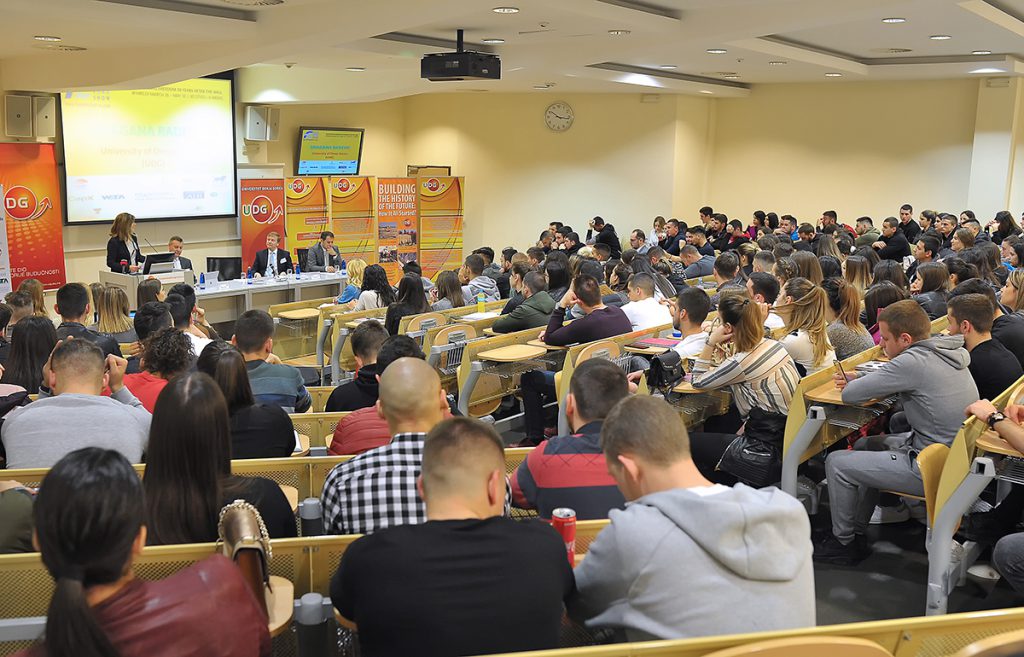
Report: Free Market Road Show in Podgorica 2019
On April 9, 2019, the Free Market Road Show was be held at the University of Donja Gorica in Podgorica.
Topic of this year’s FMRS is “Reinventing Freedom 30 Years After The Wall?”.
This year, the conference in Podgorica gathered around 350 participants, among which many young people and students who have shown interest to hear free market thinkers, experts, scientists on liberal economic thought and local hot topics covered within two panels.
In the first panel, the audience could hear about Europe at the crossroads 30 years after the fall of the Berlin wall from the perspective of changes that marked this period: technological, (geo)political changes and globalization, whereas the second covered discussion about expanding the frontiers of freedom.
Speakers of the first panel were Mr. Jaap Sprey, the head of the EBRD Resident Office in Montenegro, Mr. Terry Anker, Chairman of the Anker Consulting Group and Mr. Ivan Jovetic, President of Council of RTCG, Public National Radio and TV broadcaster, while the moderator of the panel was Dragana Radevic, Professor at University of Donja Gorica.
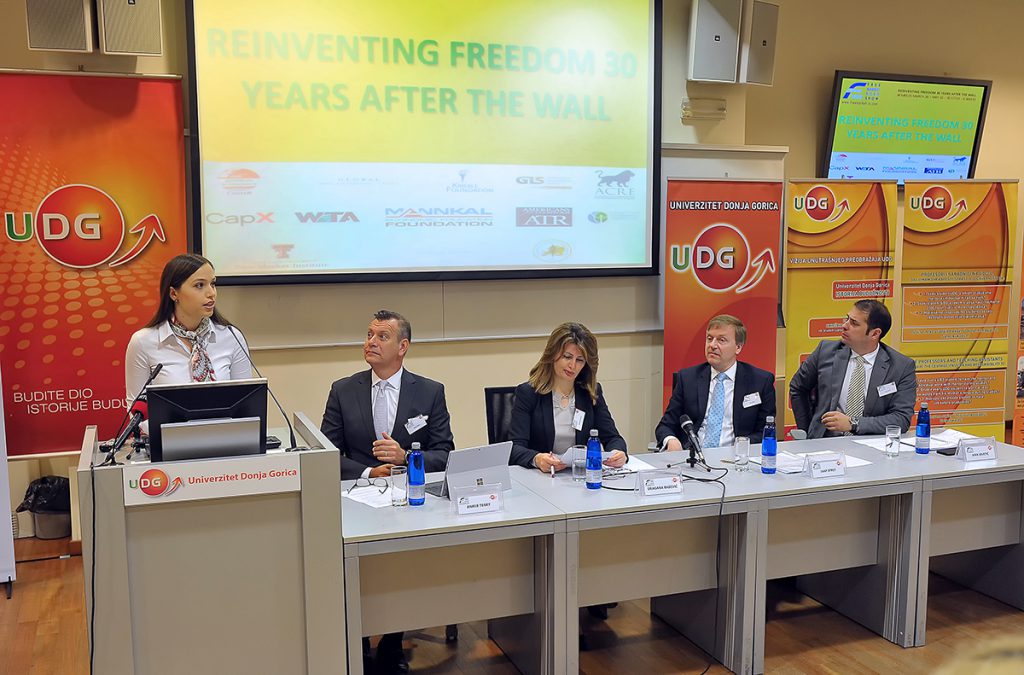
Mr Sprey presented the perspective of establishing European Bank for Reconstruction and Development (EBRD) in 1991, focusing on former communist countries committed to market economy and democratic society then and almost 30 years after, adding the perspective of Agenda 2030 and SGDs.
Mr. Anker underlined that while the EU has brought several business benefits regarding borders and exchange, its seemingly insatiable appetite to dictate the rights and policies of member states on matters of immigration, business, and personal behavior have, on balance, made it difficult for business. Regulation, and the various fees there associated, will continue to debilitate business, especially those that are smaller or require significant human or other resources to be competitive. He also addressed that the significant expansion of the Chinese capacity to manufacture and India services sector reflects that businesses that can are already shunning the heavy regulatory burden found in the EU.
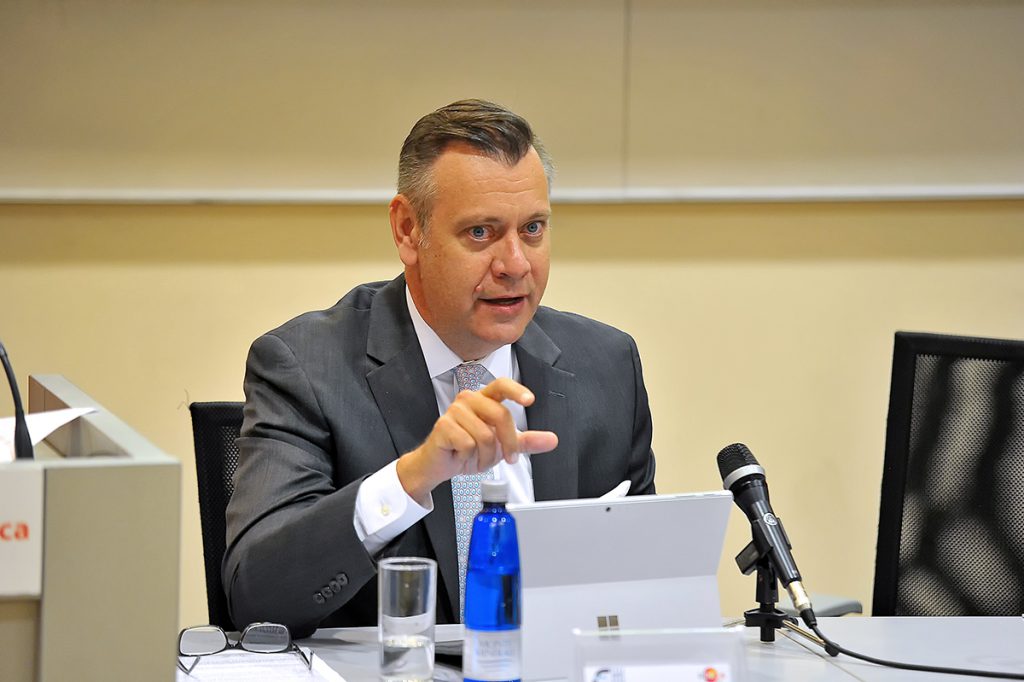
Mr. Jovetic addressed institutional crossroads that EU is facing with referring to the distance that arises between the EU institutions on one and citizens on the other hand. He also commented educational system in light of developing entrepreneurial skills among youth and security issues in the context of arising “hybrid threats” and cyber attacks used against economies, businesses and citizens.
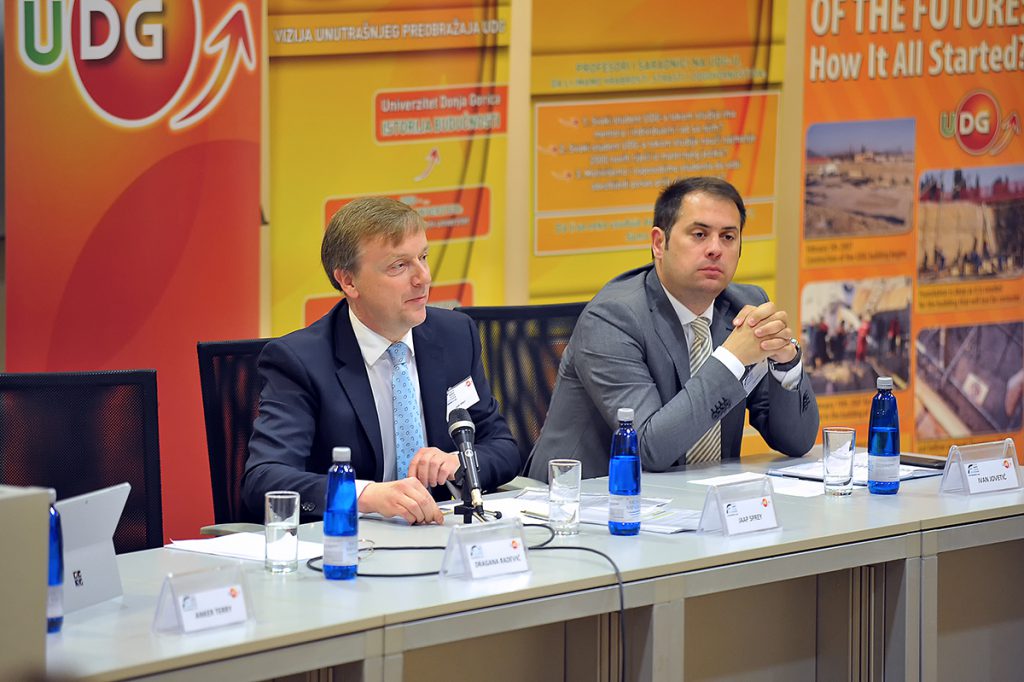
The second panel was dedicated to systems that have free markets and core frontiers of the freedom. The moderator of the panel was Milica Dakovic-Tadic, Professor at UDG. The panelists were: Mr. Lingle Cris, Professor at universities in Africa, Asia, Europe, Latin America and USA, Mr. Vojin Golubovic, Senior Researcher at the Institute for Strategic Studies and Projections (ISSP) and professor at UDG, and Mr. Federico Fernandez, Senior Fellow at Austrian Economic Center. All of them were discussing the problems and challenges which liberal thoughts faces today, as well as the crucial problems in the world.
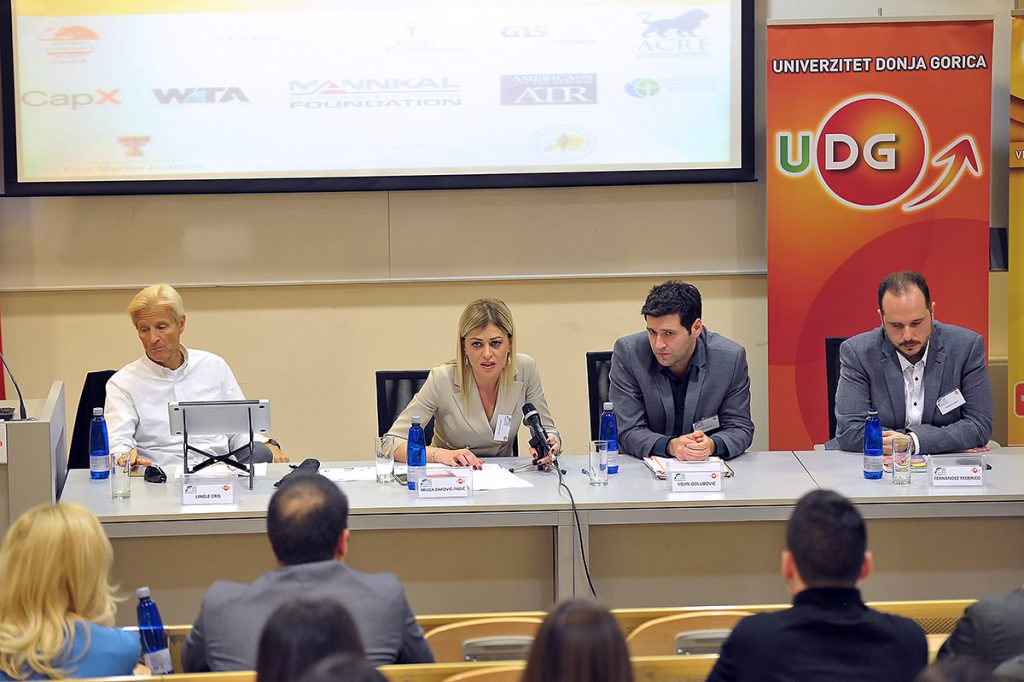
Vojin Golubovic stated that the biggest enemy of liberals are false liberals, i.e. bureaucrats who after the fall of Berlin wall took the costume of liberals, talked like liberals, but did not act as liberals. Their only goal was satisfaction of their hidden bureaucratic interest, which led to the confusion of masses who were manipulated, and their belief that liberalism is guilty for everything. Real liberal ideas rarely had a chance to be implemented and were denied such as idea of Montenegro as micro state.
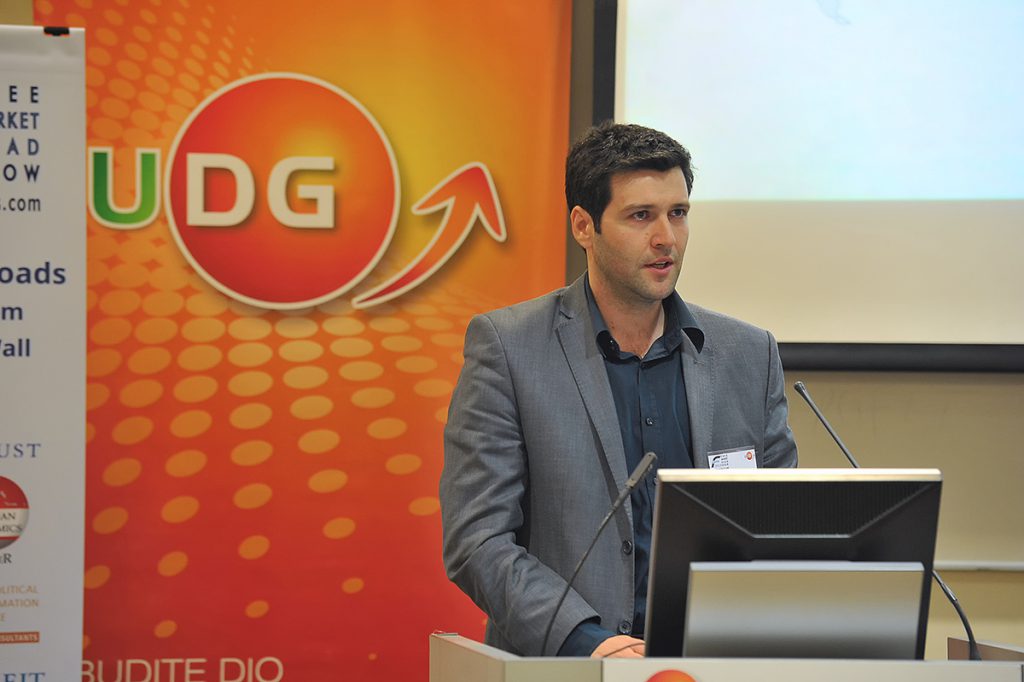
Federico Fernandez especially stressed out the current situation in Venezuela: “Venezuelan Socialist redistribution had a few good years. Some people even benefited from it. These good times helped to create the myth. There is a government that finally takes care of its the people. Some positive results can be seen. But this couldn’t last. And cracks and fails appeared everywhere. This was when the regime took action denouncing somebody or something. The setbacks are due to some “dark forces.” The oligarchs, the United States, global capitalism, market fundamentalists, and the list goes on.
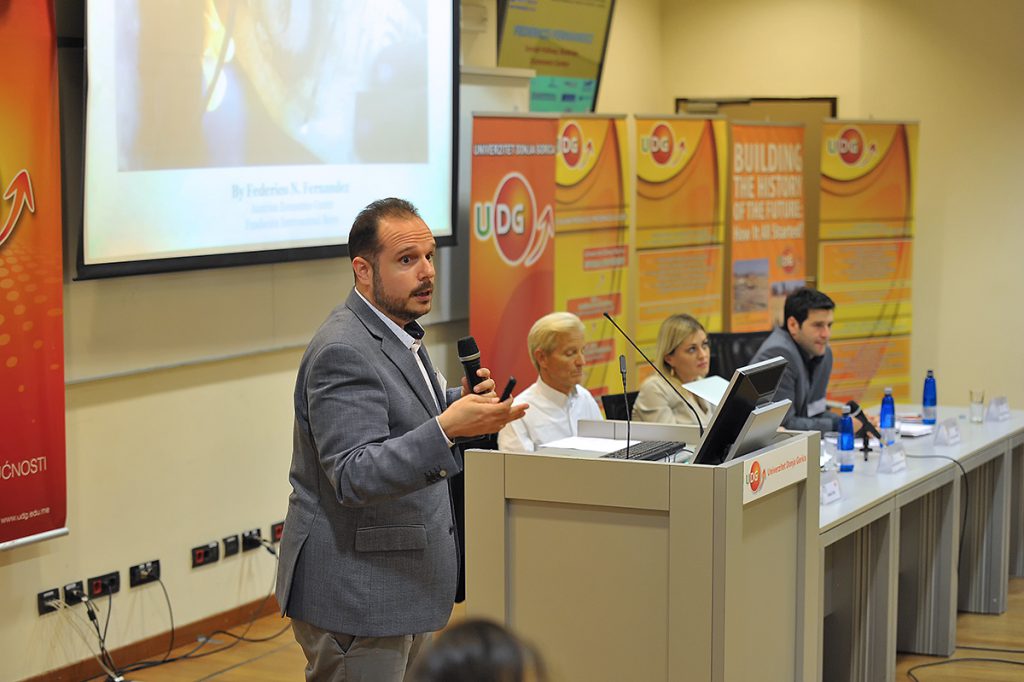
Of course, this conspiracy narrative is misleading.
Ludwig von Mises, an Austrian economist, always talked of Socialism in close relationship with another term — Destructionism. Mises believed that Socialism produces nothing, creates nothing. It only consumes capital and stocks accumulated by previous generations. And in the case of Venezuela, they not only could make use of the accumulated stocks but also of extraordinary international prices.”
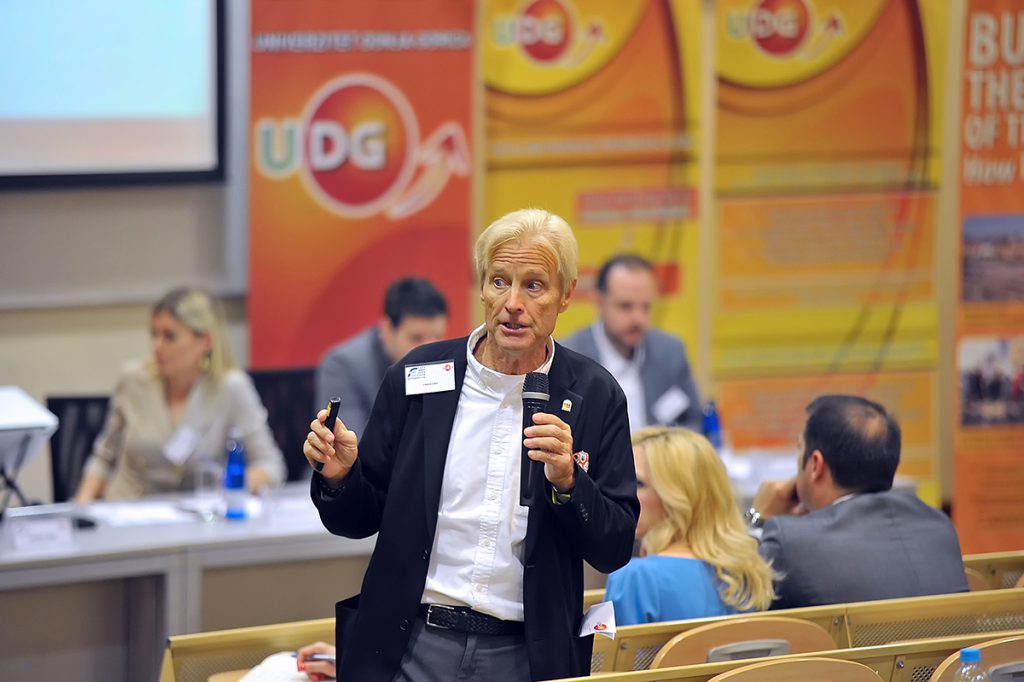
Both panels were inspiring for the visitors of the conference, given the great number of questions which arose after the speeches.
